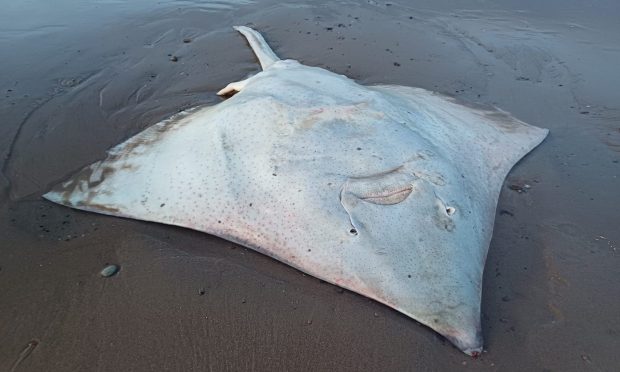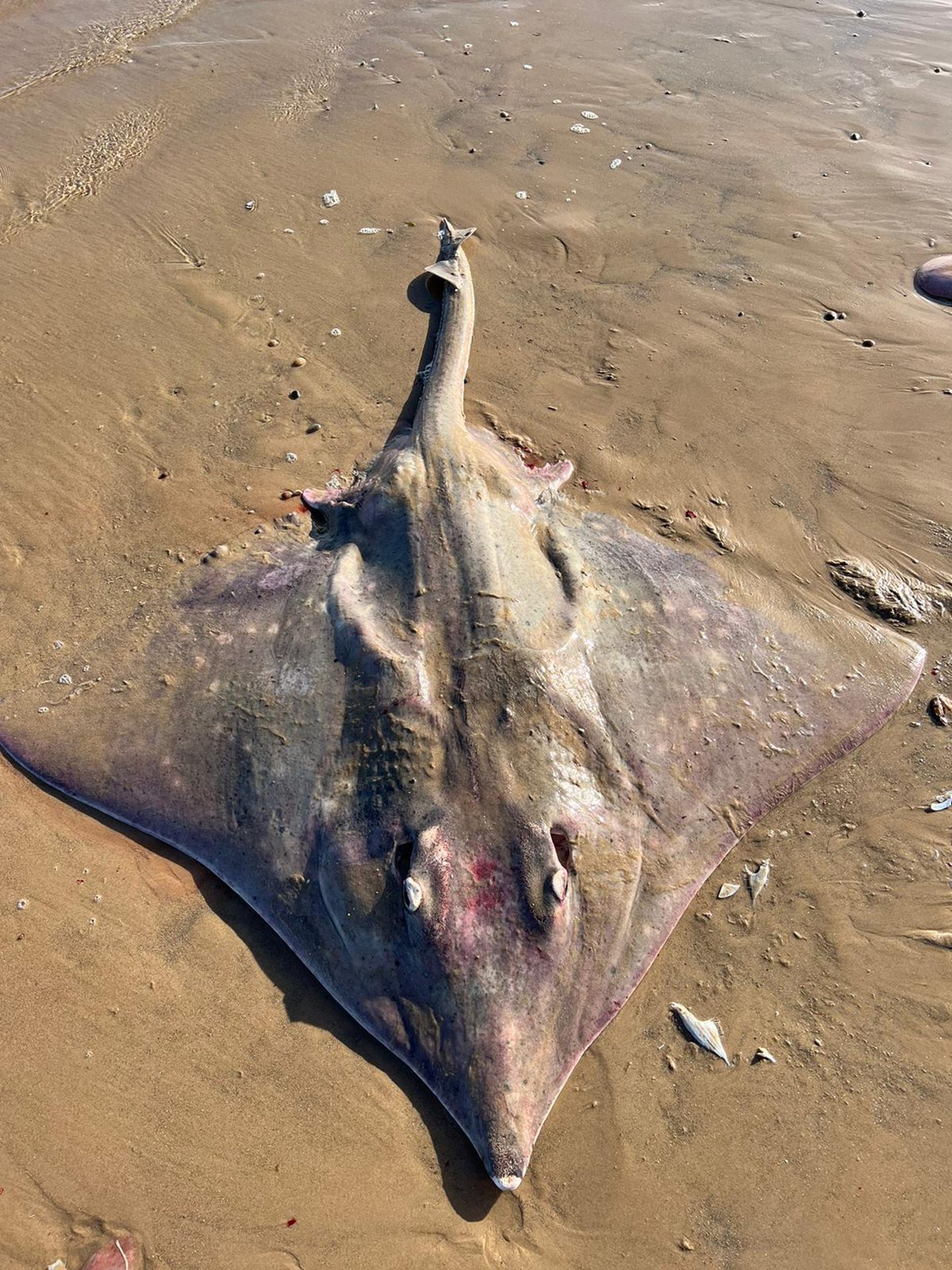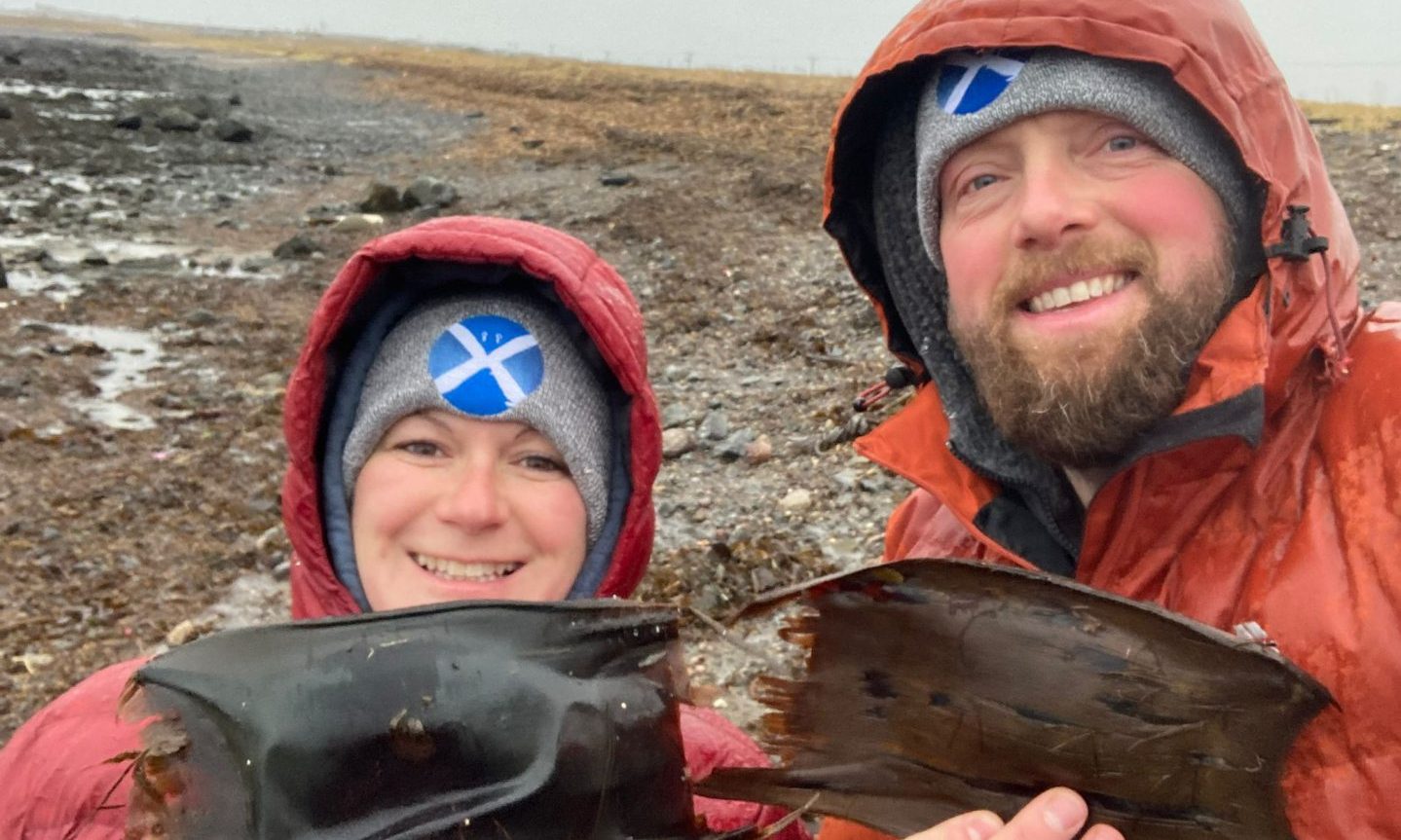Tests have been done to examine what happened to cause a huge 7ft flapper skate to be found dead on a Lossiemouth beach.
The massive fish was discovered by a runner on the East Beach who was amazed by its size.
Despite its imposing presence, very little is known about the species. It is critically endangered and Scottish waters are one of the last places they survive.
After being alerted to the dead flapper skate in Lossiemouth, experts visited the beach within hours to try to work out what happened to it.
What happened to flapper skate on Lossiemouth East Beach?
Runner Calum Reid discovered the dead flapper skate about a mile from Lossiemouth on the town’s East Beach.
He said: “I’ll go running along either one of the beaches in Lossiemouth pretty much every day, and I’ve never come across anything like it.
“It’s really quite rare for one to wash up on the beach like that, it’s a hefty creature.”
Mr Reid estimates the skate stretched to 7ft in length with a span of more than 5ft from tip to tip.
Despite being found dead on the sand, there were no obvious signs to show what had happened to the flapper skate.
How common are flapper skates?
Chris Rickard, cofounder of Shark and Skate Scotland, got in his car to Lossiemouth as soon as he heard about the find.
The Macduff-based conservationist is gathering information about flapper skates across Scotland to try and learn more about the elusive creatures.
Although they are commonly associated with deeper waters, they are also known to come close to the shore.
Mr Rickard and his fellow cofounder Lauren Smith are gathering data about sightings of flapper skates and their egg sacks to determine the numbers and reach of the species.
Mr Rickard carried out a necropsy on the flapper skate to search for clues as to its cause of death with samples of its vertebrae due to be sent to Queen’s University in Belfast as part of a study to examine how old the fish are.
He said: “I could tell this was a female. I couldn’t see any of her eggs, but could see what her last meal was, which was a couple of large edible crabs, maybe seven or eight inches across, and some small flat fish.
“It wasn’t a massive meal, but at the same time it’s enough to say she wasn’t starving, and there wasn’t any other sign of what has killed her.
“It could be old age, there were no signs of any external wounds, but at the same time it could be just one of those things.”
NatureScot says flapper skates are critically endangered and most commonly found in the northern North Sea off the north-west coast. It is now illegal to land them commercially in Scotland.



Conversation